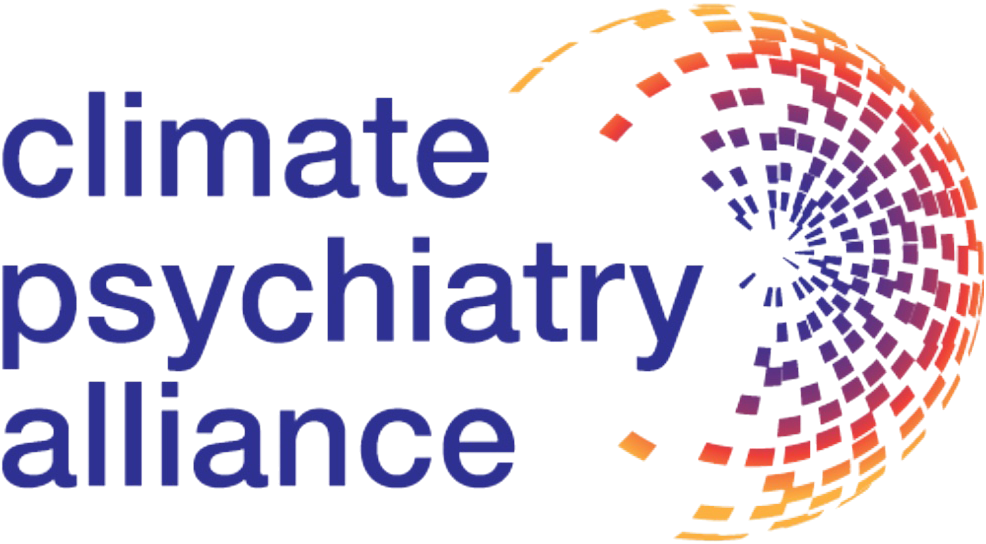Missing Home While Being Home Solastalgia
Anne Richardson, MD
Nostalgia is defined as a sense longing for the past. An uncomfortable mental experience of remembering what used to be and aching to return. Mostly experienced as a negative emotion; missing the past, happy times or places. For example, refugees that flee their homes could experience nostalgia as they miss the comfort that was derived from that environment.
Similarly, solastalgia describes a negative emotion of missing or wanting, but not due to change in time or place, but due to a change in one’s environment. It means the emotion that comes with missing one’s "home" or place of comfort in setting of physical environment change, such as natural disaster, development, mining or climate change.
The term was first introduced by Glenn Albrecht in May 2003 at Ecohealth Conference in Montreal. It is defined as “the pain or distress caused by the loss of, or inability to derive solace connected to the negatively perceived state of one’s home environment”. (Albrecht, 2007) The Latin solacium, meaning comfort, is combined with the Greek root –algia, meaning pain. A place, once a source of comfort, being destroyed along with one’s sense of security, safety and identity. Like a sense of bereavement, solastalgia is a feeling of emotional pain and disorientation with changes in the physical environment one was once connected to.
One example is the once small town of Huntersville, North Carolina, just north of Charlotte, which has experienced a 1600% increase in population since 1990, says Sperling’s Best Places to Live and equal increases in percentage of developed and cleared land. The "local" farmers and families continue to lose the sense of home and security with the rapidly changing landscape. Fond attachment to a place has been shown to be connected to self- esteem (Scannell and Gifford , 2017), greater happiness, life satisfaction and optimism (Brehm, Eisenhauser & Krannich, 2004).
A more widespread and potentially massive source of solastalgia is climate instability. Climate change has already altered local ecosystems, terrain and increased frequency and intensity of natural disasters. One study in Ontario, Canada effected by a tornado expressed feelings of loss, worry and grief as a result of the changes to their familiar landscapes (Silver and Grek-Martin, 2015). In the wake of destroyed homes and communities are extensive feelings of solastalgia. One could imagine how this prolonged mental turmoil would affect community unrest, depression rates, substance abuse, violence and suicide. In studying the Inuit community of Canada, results showed that climate change was negatively affecting feelings of place attachment by disrupting hunting, fishing, foraging, trapping, and traveling, and changing local landscapes—changes which subsequently impact physical, mental, and emotional health and well-being (Cunsolo Willox et al. 2012).
Psychiatrist, being experts and healers of negative emotion, should and will become more familiar with this mental experience through our patients as our climate and world continues to change. Our first task is to recognize subtle and overt symptoms of solastiglia, then name and define it for our patients, next to process these feelings and treat suffering and lastly to teach resiliency in the presents of change and hardship.
Resources
Albrecht G; Sartore GM; Connor L; Higginbotham N; Freeman S; Kelly B; Stain H; Tonna A; Pollard G. Solastalgia: the distress caused by environmental change. Australasian Psychiatry. 15 Suppl 1:S95-8, 2007.
Sperling’s best places to live www.bestplaces.net/people/city/north_carolina/ huntersville. Updated Dec. 2016. Accessed 4 Apr. 2018
Scannell, L., Gifford, R. (2017) Place Attachment Enhances Psychological Need Satisfaction. Environment and Behavior, 49(4), 359-389.
Brehm, J.M., Eisenhauser, B. W., & Krannich, R.S., (2004) Diminsions of community attachment and their relationship to well-being in the amenity-rich rural west. Rural Sociology, 69(3), 405-429.
Silver, A., & Grek-Martin J. (2015) “Now we understand what community really means”: Reconceptualizing the role of sense of place in the disaster recovery process. Journal of Environmental Psychology, 42, 35-41
Cunsolo Willox, A., Harper, S., Ford, J., Landman, K., Houle, K., Edge, V., & the Rigolet Inuit Community Government. (2012). “From this place and of this place”: Climate change, health, and place in Rigolet, Nunatsiavut, Labrador. Climatic Change, 121, 255-270.



